EU Referendum: EU exit would hit poor hardest, says David Cameron
- Published
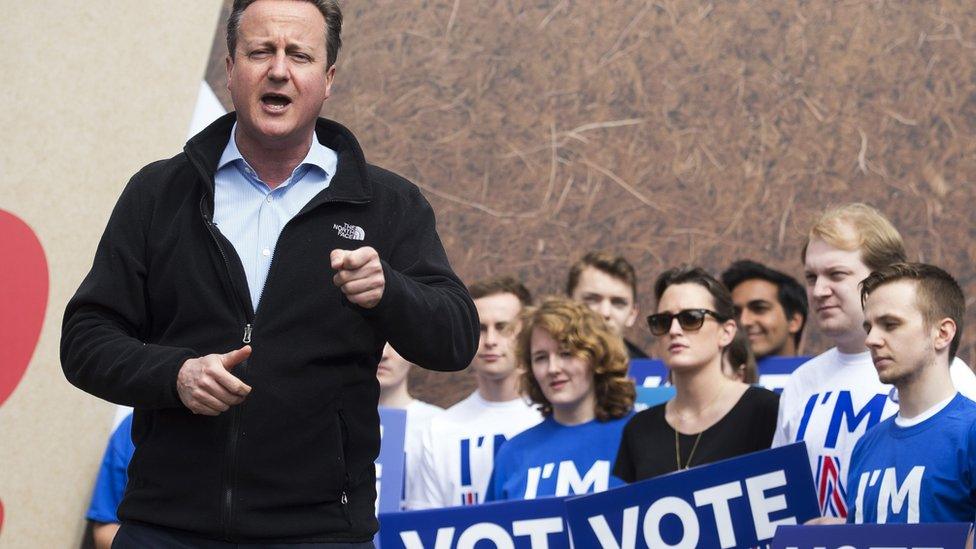
David Cameron said leaving the EU would be a "national error, a big mistake"
The poorest and most vulnerable people in the UK would be hit hardest by the economic consequences of leaving the EU, David Cameron has warned.
Leaving the union would see prices rise and threaten jobs, the prime minister said, in a move seen as an attempt to reach out to Labour voters.
Writing in the Daily Mirror, external, he said leaving would be "a national error".
Meanwhile, more than 300 business figures and entrepreneurs have signed a letter in support of an EU exit.
The referendum takes place on 23 June, when voters in the UK will be asked whether they want the country to remain in, or leave, the European Union.
With less than six weeks to go before polling day, Mr Cameron continued to make his case for staying in the EU.
He said being in the union helped working people and British manufacturing.
"I've been in this job for six years now. Whatever you think of me, I know how Britain gets things done in the world," he wrote in the Labour-supporting Daily Mirror.
"I've seen how free trade within Europe benefits working people. I've seen how manufacturing is boosted by trade deals the EU has done with the rest of the world.
"I've seen how shared intelligence keeps families safe. It's my deep, considered, steadfast belief that leaving Europe would be a national error, a big mistake."
He said three million people's livelihoods were directly linked to trade with Europe, with "countless more" linked indirectly.
'Create more jobs'
Mr Cameron's comments comes as 306 business figures have signed a letter backing Vote Leave.
The letter, published in the Daily Telegraph, external, said being a member of the EU undermines British competitiveness and Brexit would "create more jobs".
Signatories include Peter Goldstein, a founder of Superdrug, Steve Dowdle, a former vice-president of Sony, and David Sismey, a managing director of Goldman Sachs.
Tim Martin, chairman of pub chain JD Wetherspoon, Adrian McAlpine, from construction firm Sir Robert McAlpine, and Jon Moulton, chairman of Better Capital LLP, also signed the letter.
They say British business would be free to "grow faster, expand into new markets and create more jobs" from outside the EU.
"Year-on-year the EU buys less from Britain because its economies are stagnant and millions of workers are unemployed," the letter said.
It adds: "Brussels' red tape stifles every one of Britain's 5.4 million businesses, even though only a small minority actually trade with the EU."
Both the Leave and Remain campaigns have previously published letters revealing the backing of other business figures.
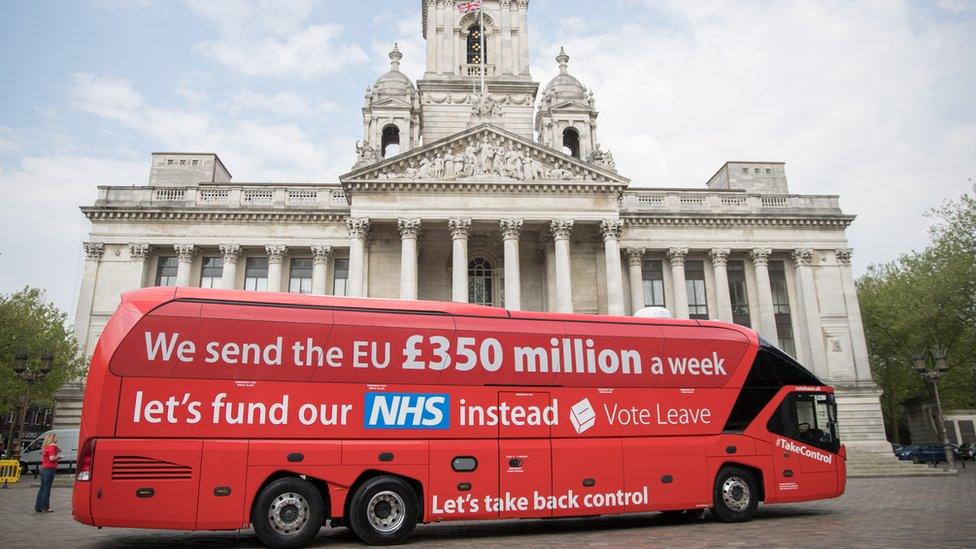
A Vote Leave battle bus is taking part in a national tour
It follows a dispute over the weekend, after Boris Johnson compared the EU's aims to Hitler's, saying both involved the intention to unify Europe under a single "authority".
The pro-exit Tory MP and former London mayor said both the Nazi leader and Napoleon had failed at unification and the EU was "an attempt to do this by different methods".
Shadow foreign secretary Hilary Benn, who backs Remain, said the comparison was "offensive and desperate".
"Leave campaigners have lost the economic argument and now they are losing their moral compass," the Labour MP said.
'Divisive, cynical politics'
Former Labour minister Yvette Cooper, who also supports the Remain campaign, accused Mr Johnson of a "shameful lack of judgement" and a willingness to play "the most divisive, cynical politics".
Lord Bramall, a former head of the Army, said making a comparison between the EU and Nazi Germany was "absurd".
However, Tory Leave campaigner Jacob Rees-Mogg said Mr Johnson's comments were "absolutely true".
He said Hitler and Napoleon "wanted to create a single European power... by force. And the EU is trying to do it by stealth."
- Published18 April 2016

- Published14 May 2016
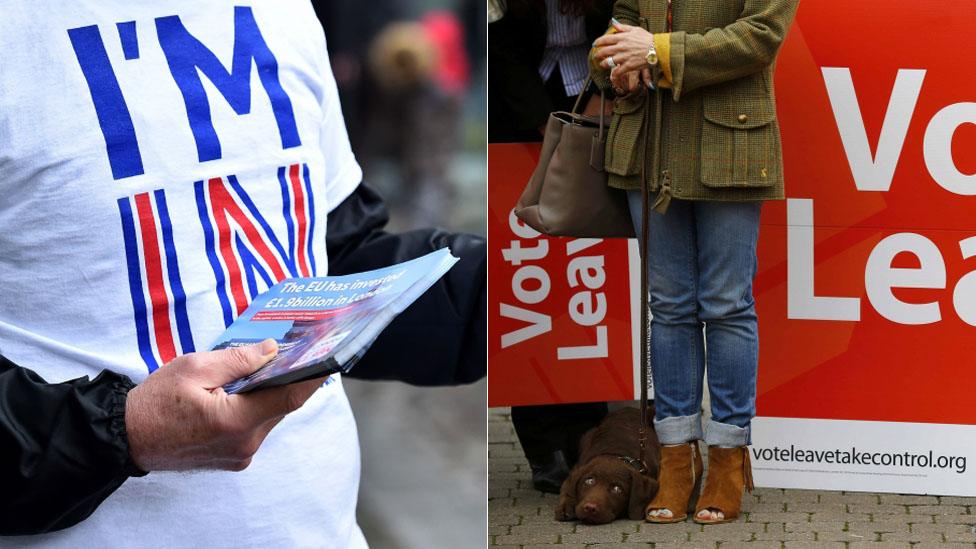
- Published13 May 2016
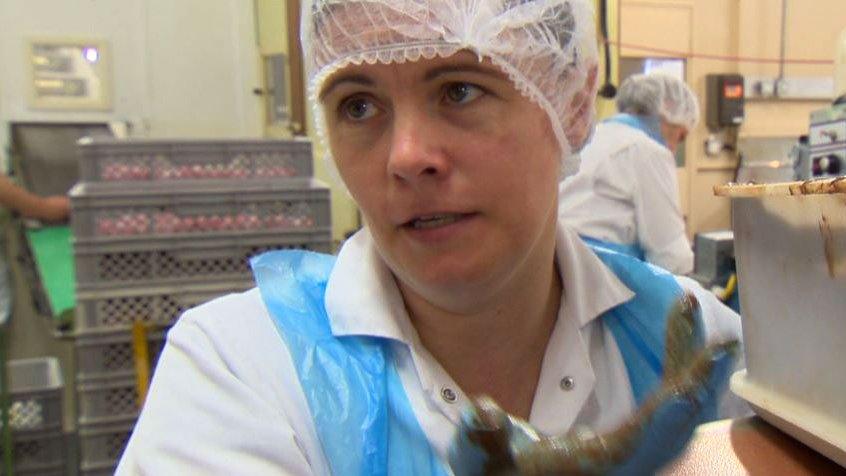
- Published10 May 2016
- Published5 May 2016
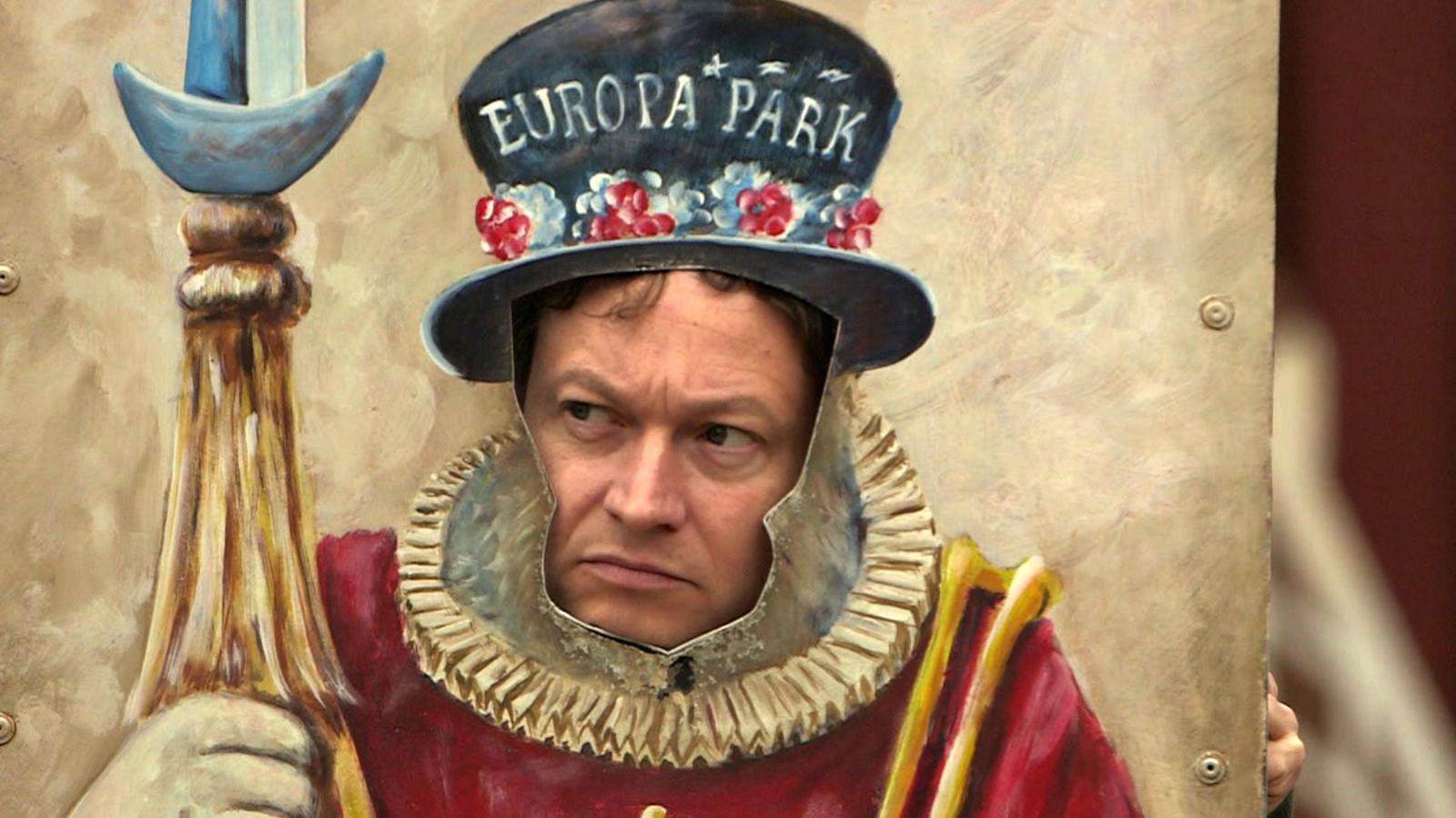
- Published21 April 2016
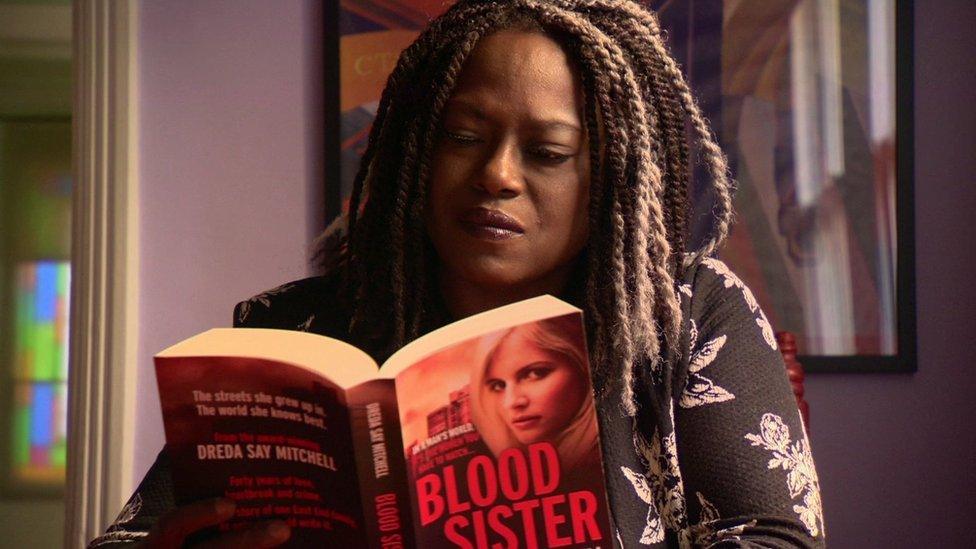
- Published10 May 2016